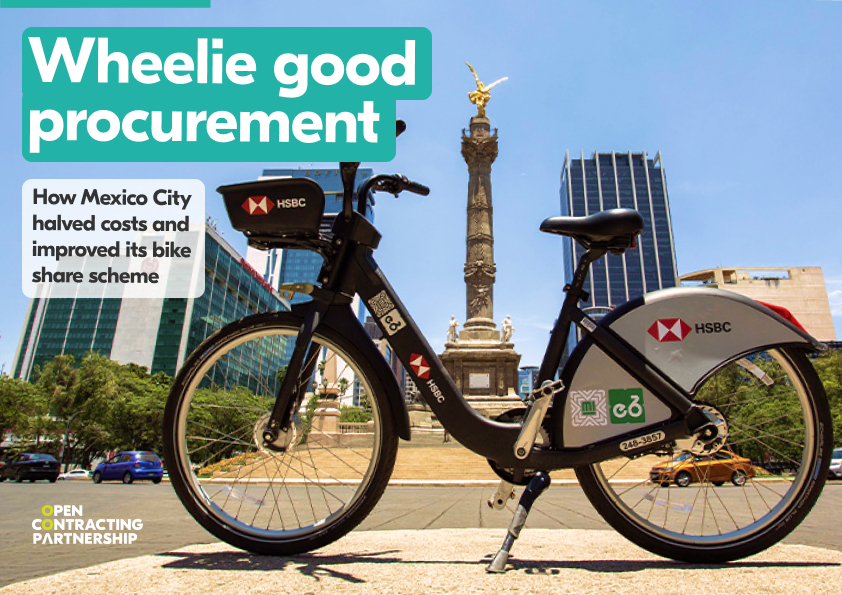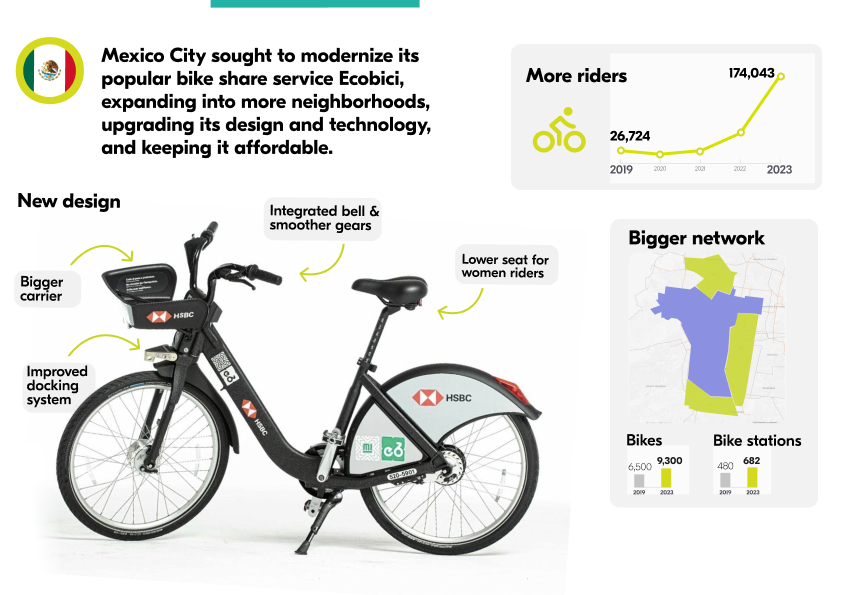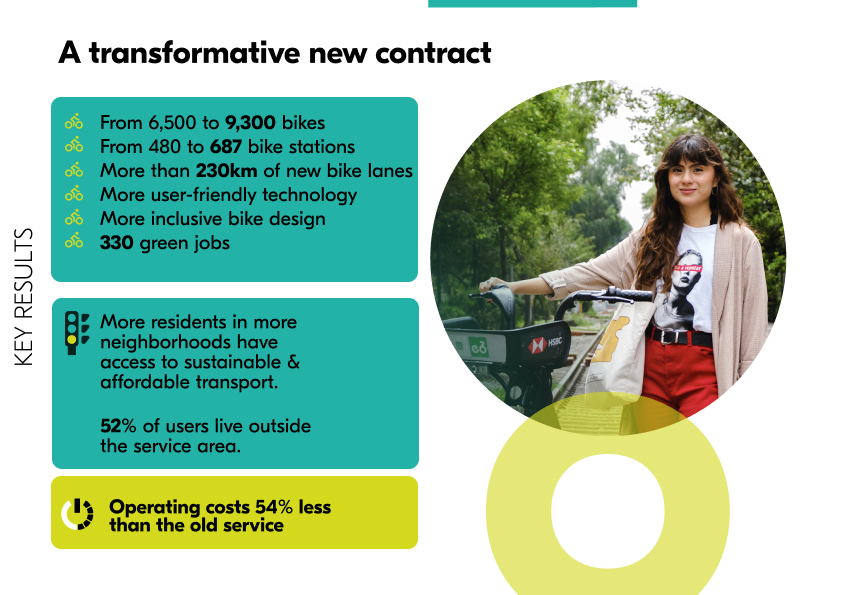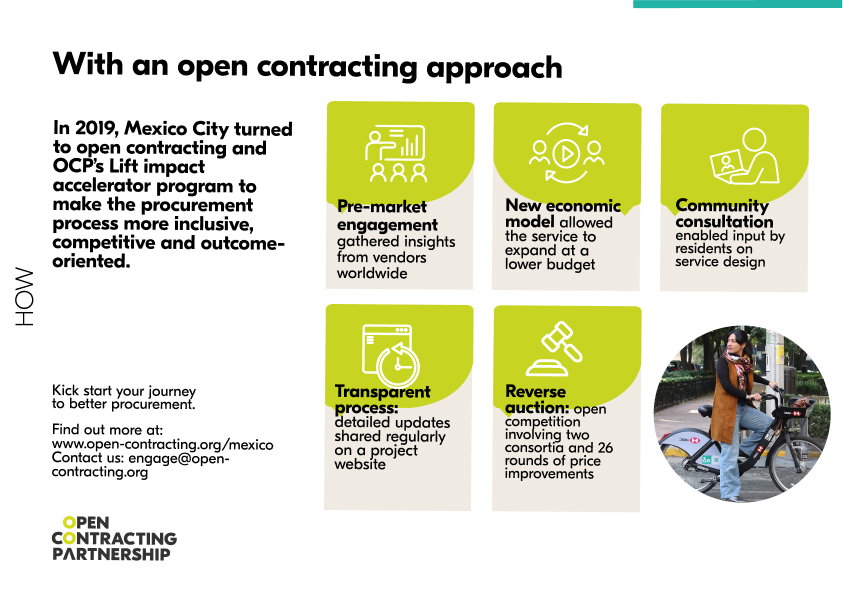Wheelie good procurement: How Mexico City halved costs and improved its bike share scheme
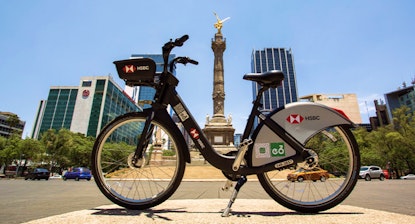
Mexico City is a leader in urban mobility, with a public bike share system that is the longest-running and largest network of its kind in Latin America.
After operating the environmentally friendly and affordable service for ten years, the city sought to expand the popular «Ecobici» program to cover more neighborhoods, and upgrade the design and technology at a reasonable cost. In its search for commercial partners, the city needed to promote competition in a concentrated marketplace, learn more about the latest bike share technology and innovations, and provide better and expanded service at the same or lower budget.
In 2019, the city team turned to open contracting to make the procurement process more inclusive, competitive and outcome-oriented, including:
- pre-market engagement to gather insights from vendors worldwide,
- a new economic model to allow the service to expand at a lower budget,
- community consultation to involve residents in deciding the service design and station locations,
- a transparent process with detailed updates shared regularly on a project website,
- a reverse auction to allow for open competition involving two consortia and 26 rounds of price improvements.
The project was supported by OCP’s Lift impact accelerator, helping to integrate open contracting principles firmly in the solicitation process.
As a result, the city expanded the service from 6,500 to 9,300 bikes and from 480 to 687 bike stations, with upgrades to the city’s bike share technology and design to be more user-friendly. And it runs at about half the operating costs of the old service.
Finally, to institutionalize the open contracting approaches used during the process to other strategic projects in the city, OCP provided technical assistance to the Agencia Digital de Innovación Pública (ADIP) in developing the «prebases» module (the draft bidding documents module) in Mexico City’s electronic procurement system Tianguis Digital. The Prebases module now simplifies the administrative tasks of the 90 spending units in Mexico City by strengthening market studies and obtaining direct information from suppliers, experts, and citizens.
Download our infographic to get all the results at a glance. And read the full story here.
